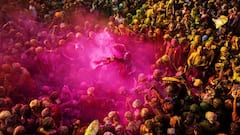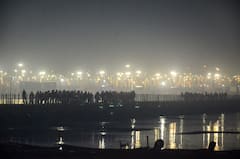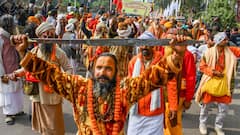Empty Roads, Closed Shops, No Internet: How Prayagraj Looked Like Day After Atiq-Ashraf Double Murder
An eerie silence engulfed the city of Prayagraj the day after the double murder of handcuffed Atiq Ahmed and his brother Ashraf on camera.

Prayagraj: Gangster-turned-politician Atiq Ahmed must have never thought that his end would be so random and helpless. Handcuffed along with brother Ashraf, surrounded by 17 men in uniform from the Uttar Pradesh Police, television cameras flashing in front of them — and yet the two were shot at point-blank range with no scope for survival. According to the postmortem report, Atiq was shot in the head, neck, chest, stomach and waist as he took in a total of eight bullets, while five bullets killed Ashraf, ending 40 years of terror in less than 40 seconds.
With the incident caught on camera, TV channels played the part again and again. Authorities sprung into action, a probe was ordered and a three-member judicial commission formed as top bureaucrats met Chief Minister Yogi Adityanath past Saturday midnight and discussed further action.
While all this happened and the night of April 15 passed, silence engulfed the city of Prayagraj. Every channel saw the chaos after the on-camera double-murder, and the questions it raised — who were the three men who did this, how did they manage this after breaking the police cauldron, and much more. On the other side of the chaos in Prayagraj was a blanket of fear and a deafening silence. The images of empty roads reminded everyone of the lockdown that had gripped the entire country three years ago.
ALSO SEE: Shops Shut, Roads Deserted: Prayagraj, A Day After Atiq-Ashraf Double Murder — In Pics
Section 144, Internet Shutdown And Fortified Areas
Internet was suspended for an indefinite period till further notice in Prayagraj and Section 144 was imposed for security reasons. It resulted in a deserted town, unusual for the Sangam-Nagari that is used to the hustle-bustle of buses, autos and vendors. The Dhoomanganj police station, where Atiq was brought two days ago, was fortified. Both entrances were barricaded with heavy police presence and no one was allowed to enter the premises.
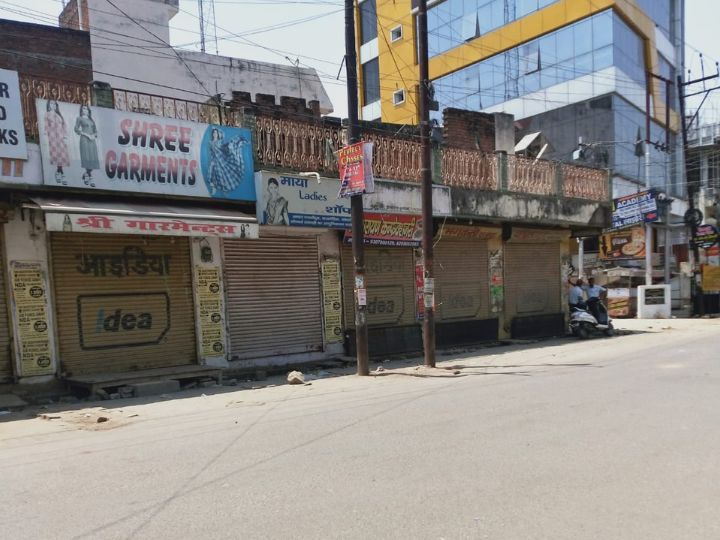
The local shops in the Preetam Nagar area, which are not on the main Grand-Trunk (GT) Road, were also shut down. Barring one or two shops selling essentials, all the shutters remained down throughout the day. The roaring sound of the bullets seemed to gag the voice of the city for a while.
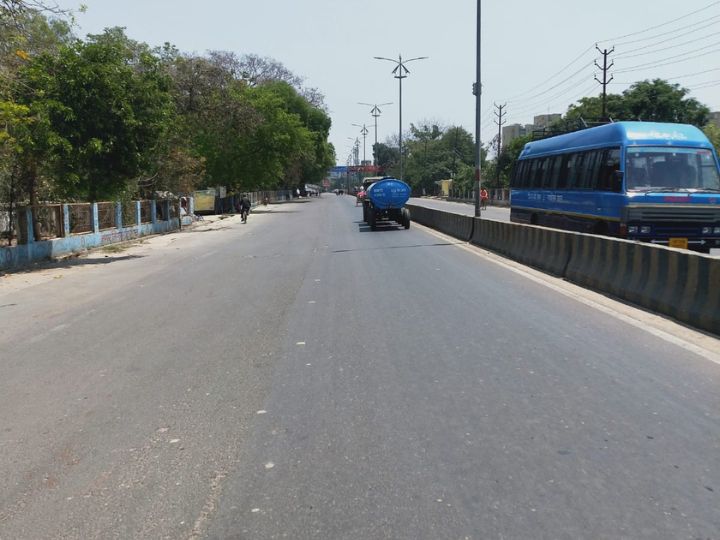
The uncertainty over internet suspension had its own effect, but going out was not an option. The entire stretch from the Nehru Park turn, where shooter Arbaaz (Umesh Pal case) was killed in an encounter a few days ago, to Dhoomanganj had police personnel present every few hundred metres on either side of the GT Road.
Cops Guarding Chaufatka, Where Atiq Ahmed Once Lived
The silence continued as one moved towards the centre of the town. Civil Lines, the heart of the city, was not throbbing at all. One could see the other end of the main civil lines road while standing on the other — something unimaginable on a normal day. The roadside parking was clear, with hardly any traffic movement. Even the auto-rickshaws, considered the lifeline of the city, were not plying, and the overbridge around the Allahabad High Court showed no sign of life.
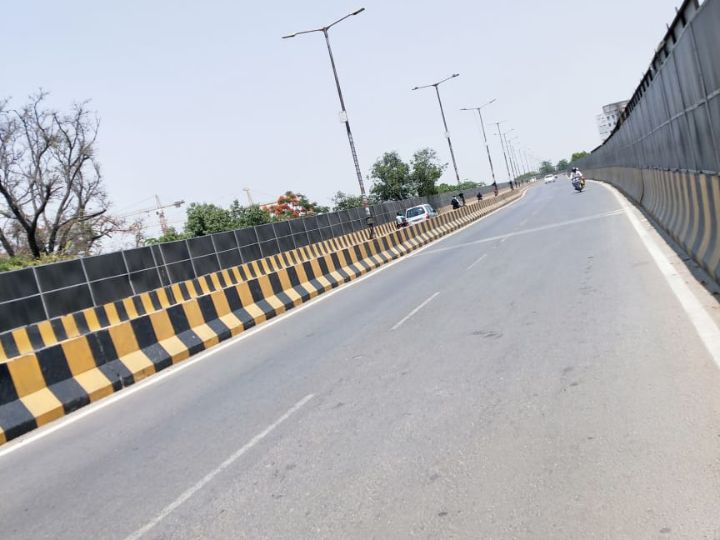
The entrance to the Chaufatka area, where Atiq Ahmed had his house once, was heavily guarded, with police force who refused to be photographed. The other side of the area (after crossing the railway line through the bridge) was no different. Atiq’s destroyed house in Chaufatka holds no importance now. But to ensure no untoward incidents happen, police personnel were present within the 100-m range under the shade of a tree in the scorching heat. From Chaufatka to Chakiya, Rajrupur — all prime areas of rule for Atiq saw police vehicles and PAC presence.
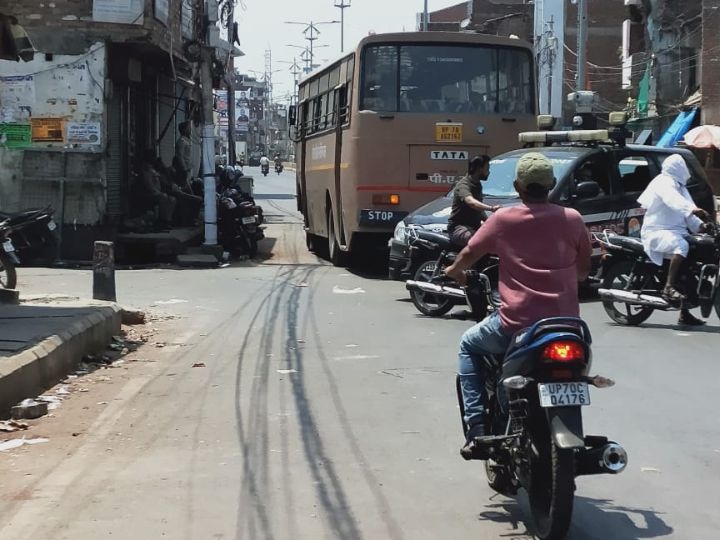
Barring a few motorbikes, a few private vehicles and police cars, nothing else could be seen on the roads. In the evening, the security was further strengthened as Atiq and Ashraf were taken for burial at the Kasari-Masari cemetery in Chakiya.
How the next morning will be, whether the internet will work – nothing was known to the residents. The usual practice everywhere is to announce when the authorities plan to suspend the internet. But as a surprise to all, no one had the slightest idea about the resumption of internet services. A policeman did say, however, 24 hours would be the minimum, but it was not back even on Monday morning, though some phones caught the black bars intermittently.
With Eid approaching, ensuring security is a top priority for the state government, and a big challenge too.
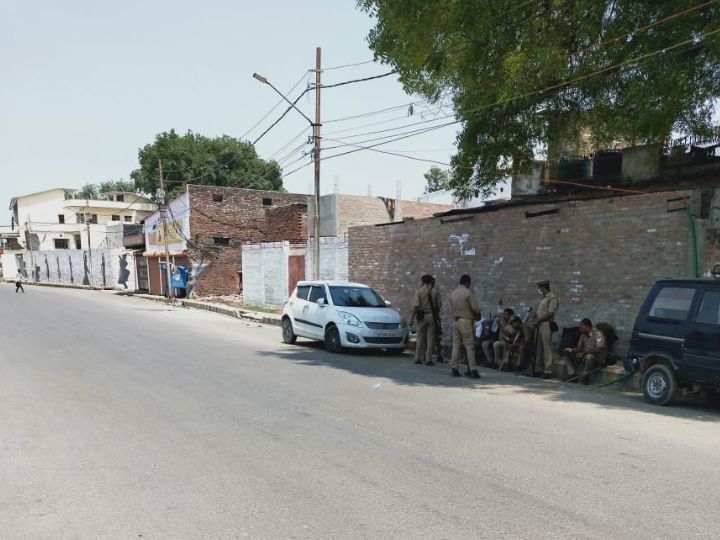
Related Video
BMC Elections 2026: Mumbai BMC Mayor Post Still Unclear Weeks After Election Results

















